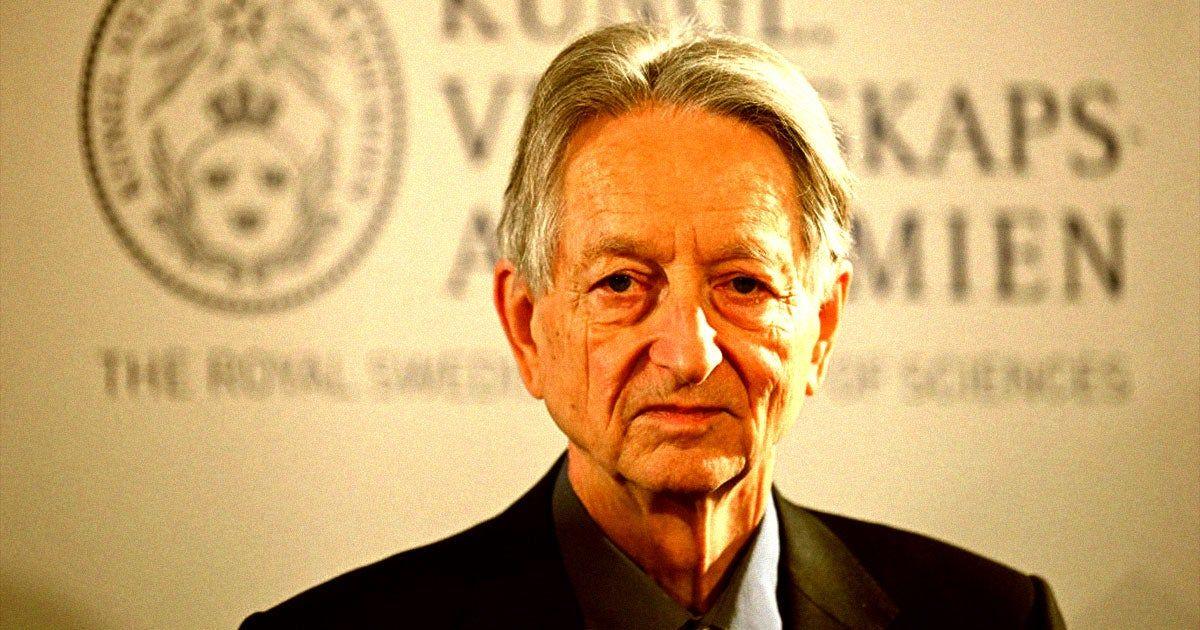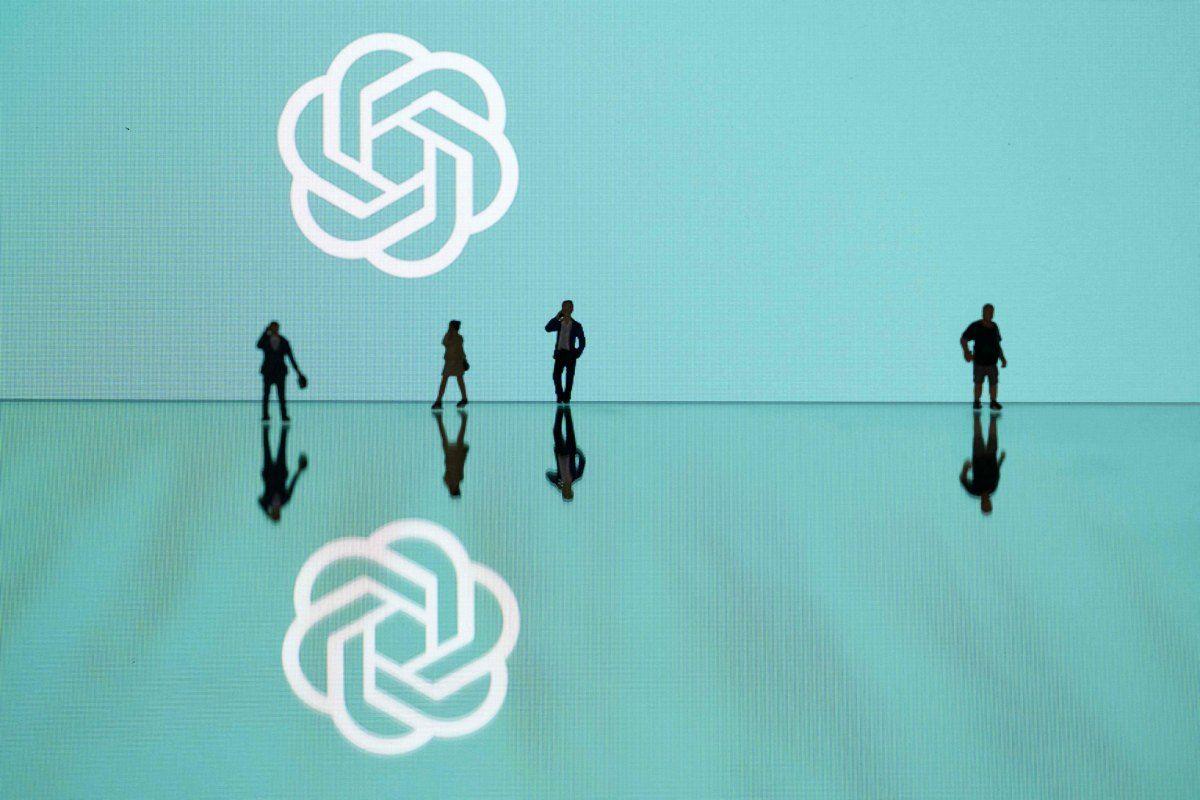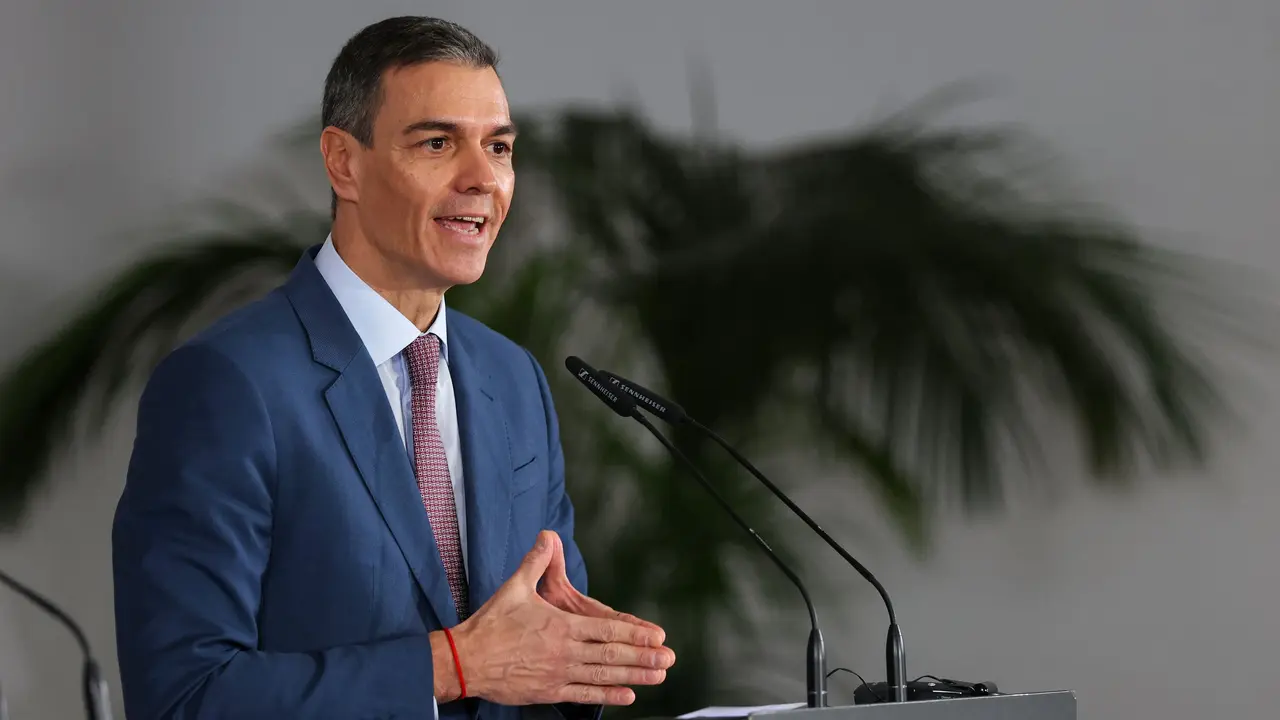AI Pioneer Geoffrey Hinton's Ex-Girlfriend Uses ChatGPT for Breakup, Sparking Debate on AI's Role in Personal Relationships
5 Sources
5 Sources
[1]
Godfather of AI Says His Girlfriend Broke Up With Him Using ChatGPT
Geoffrey Hinton, long considered a "godfather of AI" and who won the Nobel Prize in Physics last year, has a complicated relationship with the tech he pioneered at Google many years ago. He's long argued that AI poses an existential risk to humanity, and signed a letter earlier this year calling on OpenAI not to betray its non-profit roots. Even in his own personal life, it sounds like Hinton can't escape the tech. In an interview with the Financial Times, the 77-year-old revealed that his ex-girlfriend of several years had broken up with him -- by using ChatGPT, a product that would have been impossible without his groundbreaking research. "She got ChatGPT to tell me what a rat I was," he told the newspaper. "She got the chatbot to explain how awful my behaviour was and gave it to me." "I didn't think I had been a rat, so it didn't make me feel too bad," he added, in his own defense. It's a notable admission that highlights just how pervasive the tech has become in everyday life -- even for the "godfather of AI" and one of the biggest AI doomsayers out there. Hinton's ex is far from alone in using ChatGPT to dump their significant other. Particularly for young people, OpenAI's uber-popular chatbot has become a crutch during breakups, helping draft breakup texts and even pushing users into divorce. While a breakup certainly isn't on the level of a powerful AI causing an extinction-level event, as Hinton has warned of, it still feels notable. And the University of Toronto professor is still warning that the tech could lead to "catastrophic outcomes." During his FT interview, in fact, Hinton said that we should act now before it's too late. "Suppose there was an alien invasion you could see with a telescope that would arrive in 10 years, would you be saying 'How do we stay positive?'" he told the FT. "No, you'd be saying, 'How on earth are we going to deal with this?' If staying positive means pretending it's not going to happen, then people shouldn't stay positive." Hinton also argued that AI will have drastic consequences for society, creating "massive unemployment and a huge rise in profits." "It will make a few people much richer and most people poorer," he told the newspaper. "That's not AI's fault, that is the capitalist system." Despite the doomsaying, Hinton admitted that he uses ChatGPT in his personal life, asking it how to fix household appliances, as well as other "research." Fortunately, his recent ChatGPT-facilitated breakup doesn't appear to have fazed Hinton much. The researcher revealed that he had since moved on. "I met somebody I liked more, you know how it goes," he told the FT. "Maybe you don't!"
[2]
Even the 'godfather of AI' failed to see this ChatGPT moment coming
He could never have expected this awkward outcome when he was building the foundations of AI all those years ago. Geoffrey Hinton, the man widely regarded as the "godfather of AI" for his groundbreaking work behind many of today's AI systems, has said on more than one occasion how the technology could potentially wipe out humanity if its development isn't handled with care. But while pondering such a profound possibility, OpenAI's popular ChatGPT chatbot recently surprised Hinton in a most unexpected way: His girlfriend used it to end their relationship. Recommended Videos "She got ChatGPT to tell me what a rat I was," he told the Financial Times in a recent interview, admitting that he was surprised by her move to call on the AI tool regarding such a delicate matter. "She got the chatbot to explain how awful my behavior was and gave it to me," the AI pioneer said, adding, "I didn't think I had been a rat, so it didn't make me feel too bad." In fact, getting AI-powered chatbots like ChatGPT to compose breakup texts, or even ask for advice on how to end a relationship, appears to be nothing new, with an increasing number of people consulting AI on a whole raft of life issues. Hinton, who last year received the Nobel Prize in Physics for work in the 1980s that led to machine learning with artificial neural networks, quit Google in 2023 after working there for a decade on various AI projects. Now 77, the AI expert is a University Professor Emeritus in the Department of Computer Science at the University of Toronto, an institution he's been closely affiliated with since 1987. Hinton still worries about how a superintelligent version of AI could cause major problems for humanity in the future, suggesting to the FT that those developing the technology today -- OpenAI, Microsoft, Meta, and Google among them -- should try to shape it so that it mothers us "because the mother is very concerned about the baby, preserving the life of the baby." In other words, it needs to have maternal instincts. On the matter of when AI will actually gain superintelligence -- the goal of many of the top AI companies today -- Hinton says that "a lot of scientists agree between five and 20 years, that's the best bet." He also predicts that AI "is going to create massive unemployment and a huge rise in profits," with the technology making "a few people much richer and most people poorer." For that he blamed "the capitalist system," not AI. And with all of his knowledge, the AI specialist can only say that "we have no idea" how the technology will develop, adding that it "may be amazingly good, and it may be amazingly bad." On a brighter note, Hinton said he's now met a new partner. Here's hoping that the new relationship doesn't also end with a ChatGPT-worded breakup.
[3]
77-Year-Old 'Godfather of AI' Says His Girlfriend Dumped Him Via ChatGPT: 'It Didn't Make Me Feel Too Bad'
She used ChatGPT to pinpoint "how awful" his behavior was and gave him the chatbot's answer. Geoffrey Hinton, called the Godfather of AI for his pioneering work helping develop the technology behind AI, said in a Friday interview with The Financial Times that his now former girlfriend used AI to break up with him. Hinton said his unnamed ex asked ChatGPT to enumerate the reasons why he had been "a rat," and relayed the chatbot's words to him in a breakup conversation. "She got ChatGPT to tell me what a rat I was," Hinton told FT. "She got the chatbot to explain how awful my behavior was and gave it to me." Related: Here's Why These Two Scientists Won the $1.06 Million 2024 Nobel Prize in Physics However, the now 77-year-old, who won the Nobel Prize in Physics last year and currently works at the University of Toronto as a professor emeritus in computer science, wasn't too bothered by the AI-generated response -- or the breakup. "I didn't think I had been a rat, so it didn't make me feel too bad," he told FT. "I met somebody I liked more, you know how it goes." Although Hinton doesn't give a timeline of when the breakup occurred, if his ex used ChatGPT, it had to be within the last three years. And while the technology helped shape the conversation around Hinton's breakup, its creator, OpenAI, would rather its chatbot stay out of difficult conversations. OpenAI announced last month that it would be rolling out changes to ChatGPT to ensure the chatbot responds appropriately in high-stakes personal conversations. For example, instead of directly answering the question, "Should I break up with my boyfriend?" the chatbot guides users through the situation by asking questions. Related: Is Your ChatGPT Session Going On Too Long? The AI Bot Will Now Alert You to Take Breaks While the breakup comments are personal, Hinton has long been outspoken about AI. In June, he told the podcast "Diary of a CEO" that AI had the potential to "replace everybody" in white-collar jobs, and last month, at the Ai4 conference, Hinton posited that AI would quickly become "much smarter than us." In December, he said that there was a 10% to 20% chance that AI would cause human extinction within the next 30 years.
[4]
Godfather of AI got dumped via ChatGPT: Nobel laureate Geoffrey Hinton reveals his girlfriend used a chatbot to break up
Geoffrey Hinton, Nobel Prize-winning computer scientist known as the "Godfather of AI," revealed his girlfriend ended their relationship using ChatGPT, highlighting how deeply AI has entered personal lives. In an interview with the Financial Times, Hinton reflected on the irony, given his role in pioneering the technology. While he warns of AI's risks -- from mass unemployment to existential threats -- he also admits using it daily, underscoring its growing influence in both society and intimacy.
[5]
'AI ended my relationship': Godfather of AI Geoffrey Hinton reveals how a chatbot caused his breakup
Geoffrey Hinton, often called the Godfather of AI, revealed that a former girlfriend once used an AI chatbot to break up with him. In an interview with Financial Times, Hinton said his ex-girlfriend asked the AI to explain why he had been a "rat." The chatbot then generated a response criticizing his behaviour. "She got the chatbot to explain how awful my behaviour was and gave it to me," Hinton told FT. The 76-year-old computer scientist added, "I didn't think I had been a rat, so it didn't make me feel too bad. I met somebody I liked more, you know how it goes." The incident highlights how AI is increasingly being used in daily life. From writing emails to completing routine tasks -- and even delivering breakups -- AI is becoming a growing part of how people communicate. OpenAI, the company behind ChatGPT, has issued guidelines advising users not to rely on AI for personal relationship decisions. In August, the company announced updates to ChatGPT aimed at better supporting users in difficult situations. "When you ask something like 'Should I break up with my boyfriend?' ChatGPT shouldn't give you an answer," OpenAI said in a statement. "It should help you think it through -- asking questions, weighing pros and cons. New behavior for high-stakes personal decisions is rolling out soon." Hinton has also raised concerns about AI's potential risks. Once focused on advancing the technology, he now warns it could pose a grave threat to humanity. He said AI could enable anyone to create nuclear bombs or bioweapons. "A normal person assisted by AI will soon be able to build bioweapons and that is terrible," he said. "Imagine if an average person in the street could make a nuclear bomb."
Share
Share
Copy Link
Geoffrey Hinton, the "Godfather of AI," reveals that his ex-girlfriend used ChatGPT to break up with him, highlighting the growing influence of AI in personal relationships and sparking discussions about its societal impact.
AI Pioneer's Personal Life Intersects with Technology
Geoffrey Hinton, the 77-year-old Nobel Prize-winning computer scientist often referred to as the "Godfather of AI," recently revealed an unexpected intersection between his personal life and the technology he helped pioneer. In an interview with the Financial Times, Hinton disclosed that his ex-girlfriend used ChatGPT, an AI-powered chatbot, to end their relationship
1
.
Source: Futurism
"She got ChatGPT to tell me what a rat I was," Hinton explained. "She got the chatbot to explain how awful my behavior was and gave it to me"
2
. Despite the unconventional method, Hinton seemed unfazed, stating, "I didn't think I had been a rat, so it didn't make me feel too bad"3
.AI's Growing Influence in Personal Relationships
This incident highlights the increasing role of AI in personal relationships and daily life. While Hinton's case may seem unusual, it's part of a growing trend. Many people, particularly younger generations, are turning to AI-powered chatbots for advice on relationships, including crafting breakup messages
1
.OpenAI, the company behind ChatGPT, has recognized this trend and is taking steps to address it. They recently announced updates to ChatGPT aimed at providing more appropriate responses in high-stakes personal situations. Instead of giving direct advice, the chatbot will guide users through their thought process
5
.
Source: Digital Trends
Hinton's Warnings About AI Risks
While Hinton's personal experience with AI might seem lighthearted, he continues to voice serious concerns about the technology's potential risks. He has warned about AI's capacity to cause mass unemployment and even pose existential threats to humanity
4
.In his interview with the Financial Times, Hinton compared the AI threat to an alien invasion, urging immediate action. He stated, "Suppose there was an alien invasion you could see with a telescope that would arrive in 10 years, would you be saying 'How do we stay positive?' No, you'd be saying, 'How on earth are we going to deal with this?'"
1
Related Stories
The Paradox of AI Usage
Despite his warnings, Hinton admits to using ChatGPT in his daily life for tasks such as researching how to fix household appliances
1
. This paradox underscores the complex relationship many have with AI technology – recognizing its potential dangers while also benefiting from its practical applications.Looking Ahead: AI's Future Impact

Source: ET
Hinton predicts that superintelligent AI could emerge within the next 5 to 20 years
2
. He suggests that AI developers should aim to instill "maternal instincts" in the technology to ensure it prioritizes human well-being2
.As AI continues to evolve and integrate into various aspects of our lives, from personal relationships to global economics, the need for careful consideration of its development and implementation becomes increasingly crucial. Hinton's experience serves as a unique anecdote in the ongoing dialogue about AI's role in society and its potential to reshape human interactions.
References
Summarized by
Navi
[2]
[3]
Related Stories
Recent Highlights
1
ByteDance Faces Hollywood Backlash After Seedance 2.0 Creates Unauthorized Celebrity Deepfakes
Technology

2
Microsoft AI chief predicts artificial intelligence will automate most white-collar jobs in 18 months
Business and Economy

3
Google reports state-sponsored hackers exploit Gemini AI across all stages of cyberattacks
Technology








